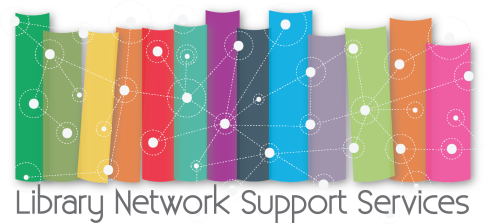Project Activities
Project activities/developments
The LNSS project will commence with the Project Kick Off- PMC meeting to be held in Limerick in Nov 2015 where criteria & procedures for communications between partners, management & decision making structures & the functions of the Working Groups, contact persons, Local Commitees, Library Access Liaison Librarian & local project coordinators will be agreed. All partners will sign the Consortium Agreement which will rule relations, methods of cooperation, disagreements, planning meeting agenda and the identification & agreement of control procedures, including problem solving procedures.
Preparation in the project will involve the implementation of Training and library needs detection, Library Strategic Review, needs analysis regarding Electronic library services, Mission Statement.
The Development phase of the LNSS project will commence with ESP Training (Libraries and library terminology) - as part the Kick off Meeting in LIT followed by the preparation of the ECTS Module Training Programme + Training materials using EU Tuning Method. This is followed by LNSS Curriculum Training + Piloting & Evaluation of Piloting of LNSS Curriculum in PC's, Consortium Strategic Plan, Digital and Electronic Library Strategy.
Quality will be ensured through the Evaluation Working Group, evaluation of LNSS Curriculum piloting and QA reports. Important activities for Dissemination/Sustainability in the project include the LNSS National Awareness Days, Dissemination Workshops, LNSS modules testing & integration, the LNSS Online Platform, Final Project Conference.
The plan is to develop training programmes supported by ECTS modules (both hard copy in script form and online on project website platform) and embed incurricula in PC universities, public administration institutes and disseminate also through Public and National libraries to ensure maximum transfer effect to society at large.
Training content and Pedagogical Approach
We will determine in each case the required methodological approaches needed with respect to how to teach, and meet the needs of librarians and library staff. Each partner will design bespoke training programmes to best meet their target market (i.e. University library staff, academic staff, students & student teachers, policy makers, public librarians) enabling flexible and responsive solutions that stem from an agreed set of principles and enabling all areas of libraries to be addressed. The pedagogical approach will stress communicative and skills teaching approach. Following our needs analysis of the library situation in PC countries-these modules were identified which will form the LNSS Curriculum
LNSS CURRICULUM MODULES
- Module 1
- English for Specific purposes (Libraries, library terminology and library access): this is targeted at all partners and will be integrated into official university structures and where feasible public and national libraries.
- Module 2
- Marketing skills for librarians- Theory and practice- Creating Library Awareness Campaign Strategies for all learners and library users including people with disabilities.
- Module 3
-
Essential management and transferable skills for librarians and library staff.
This module will cover:
- International Library Quality Standards- IFLA, ISO, Library of Congress, NISO
- Negotiating the Library Strategic planning puzzle- strategic and business planning skills for librarians
- Effective customer care, service and strategies in Libraries
- Time management: prioritising for time and workload
- Managing staff and Library Staffing Structures
- Communication and listening skills
- The Librarians guide to developing presentation skills
- Decision making, problem solving and Leadership skills for Librarians
- Job Interviewing skills for librarians
- Management of Change in 21st century libraries
- Modern Library Financial management, acquisitions and processing of library materials
- Module 4
-
Information Literacy & Research skills- to help learners find and use information effectively and ethically- this module will cover:
- International Information Literacy Standards- SCONUL, ACRL, ALA, ANZIL,
- Using Online Information Literacy Modules for teaching Information Literacy
- Mind the Information Gap! Knowing the critical information sources and resources
- Critically analysing information resources
- Referencing citation and Avoiding Plagiarism
- Introduction to the Literature Review
- Using Electronic Library Databases for your research
- Evaluating sources of information
- Web & Internet search strategies for the Information Age
- Using Bibliographic software for your referencing and research
- Academic writing including Dissertation Writing
- Becoming a Subject Liaison Librarian: skills for collaborating with Academic staff
- Information Literacy for Entrepreneurship
- Train the Trainer: Teaching and pedagogical skills for Librarians
- Module 5
-
Innovative online library services for 21st Century Librarians:
- Designing library web sites and online platforms and portals
- Online Public Access Catalogues (OPAC)
- Web 2.0 Technologies and Social Media for libraries
- Library Mobile "Apps" ("M-libraries")
- Virtual Reference and Ask a Librarian Services
- Electronic Documents Delivery and Inter Library Loans
- Federated search: new options for libraries in the Digital Age
- Using LibGuides for Library research
- Module 6
-
The Electronic Library
- Managing Electronic Library Collections: eBooks, E-Databases and E-Journals
- Introduction to Open Access and Open Source for Librarians
- Digitisation, Preservation and Digital Services in Libraries
- Institutional repositories
- New standards in Cataloguing: RDA- Resource Description and Access
- Library Automation and Library Systems in Academic Libraries
- Module 7
-
Access to Libraries and Society for learners with special needs/disabilities:
- Library Access Policy formation and planning
- Library Assistive Technologies
- How to conduct Disability Audits
- Inclusive design and services delivery for Libraries
- Disability Awareness Training
- Module 8
-
Library Collection Development Policies: for any library- the Collection Development Policy (CDP) is perhaps the most important library policy which supports the library’s primary task of selecting, maintaining, and providing access to relevant and representative information resources for all learners. This module will cover essential CDP elements to develop quality, relevant library services and is important for sustainability in the project.
The Collection Development Policy serves as a Blueprint and guide for:- Selecting and deselecting (printed and electronic) resources for the local collection.
- Sound foundation for future planning, thereby assisting in determining priorities, especially when financial resources are limited
- The wider context: Individual libraries are increasingly unable to provide all their services by themselves, they are banding together into cooperatives, alliances.


